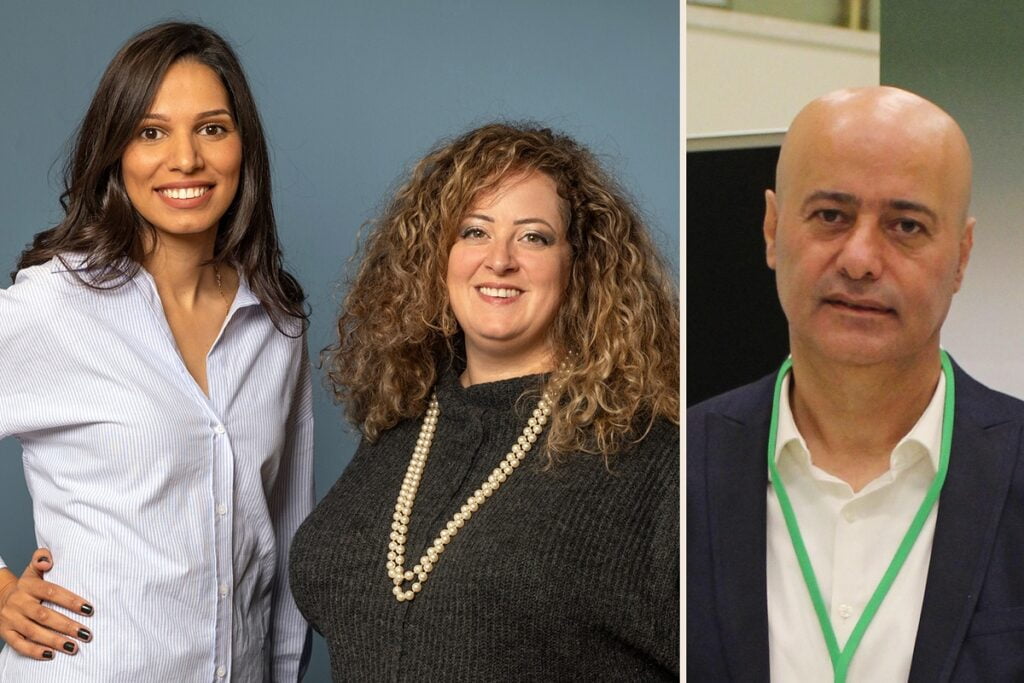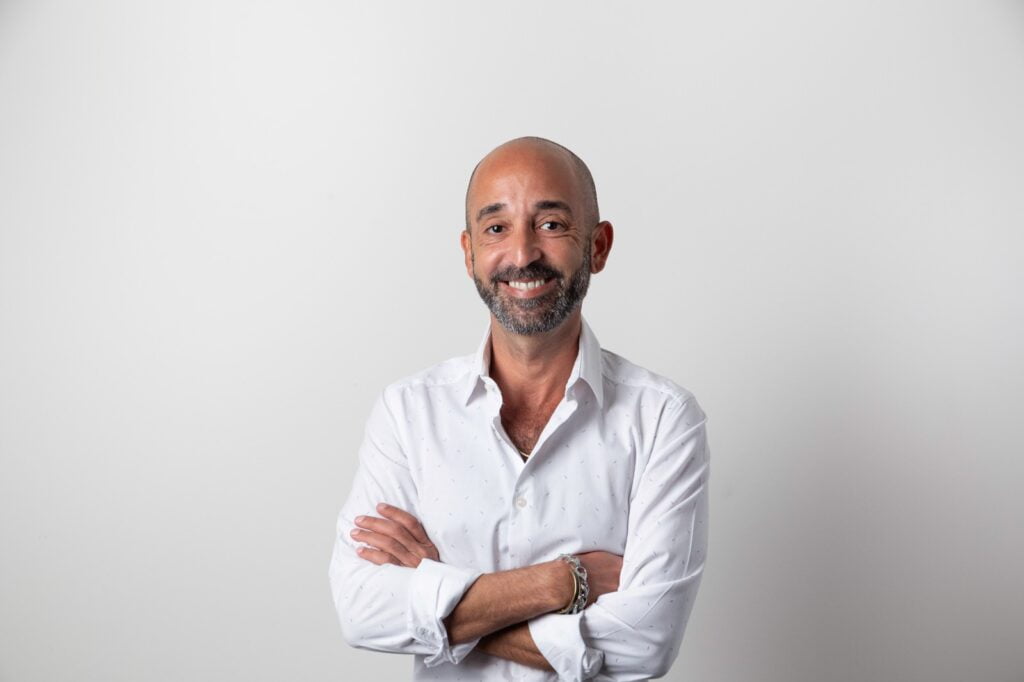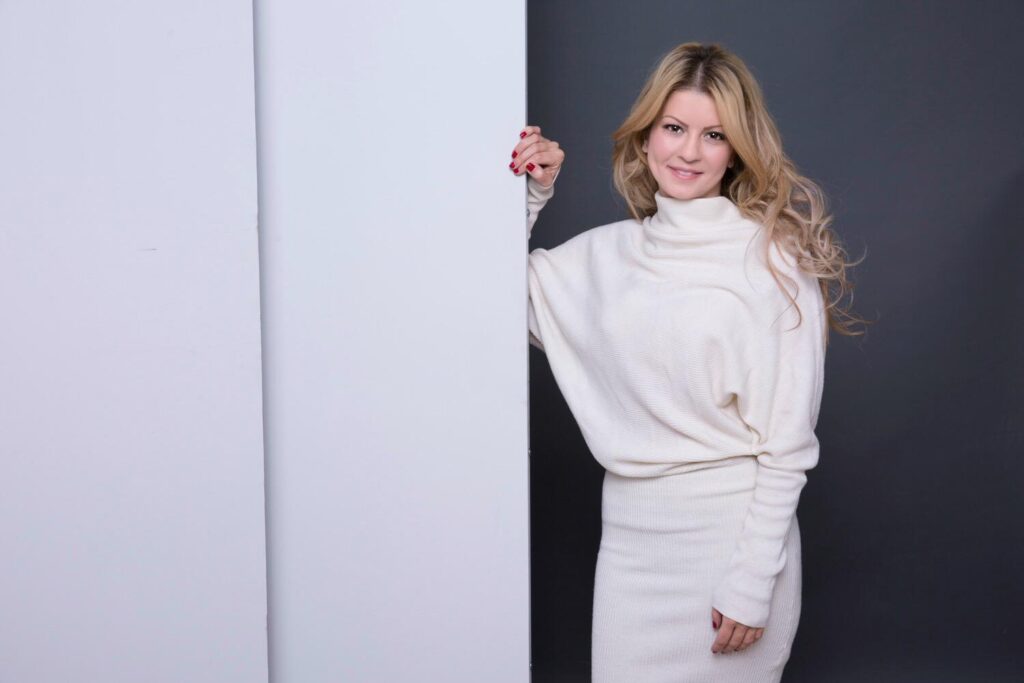PresenTense, Galilee Society Launch First Life Science And Climatech Accelerator For Arab Scientists

A new, first-of-its-kind accelerator where Arab STEM researchers can focus on establishing science-based startups is set to launch its first cohort of participants next month.
PresenTense, an Israeli organization promoting underrepresented entrepreneurs, has teamed up with The Galilee Society, the Arab National Society for Health, Research and Services, to launch ScienTech, a new first-of-its-kind accelerator focusing on creating startups in life science and climatech. The goal is to assist Arab researchers in leveraging their scientific knowledge into promising startups and entering into the Israeli high-tech ecosystem.
The accelerator is run in accordance with the United Nations’ Sustainable Development Goals (SDG) for solving social problems. The Sustainable Development Goals or Global Goals are a collection of 17 interlinked global goals designed to be a “blueprint to achieve a better and more sustainable future for all. “The SDGs were set up in 2015 by the United Nations General Assembly and are intended to be achieved by the year 2030.
It will be launched with the support of the US Department of State’s Middle East Partnership Initiative (MEPI.)
PresenTense, led by co-CEOs Khouled Ayuti and Ariella Rosen, is an impact organization for underrepresented founders that grows diversity, equity, and inclusion through entrepreneurs.

The Galilee Society, led by Ahmad Sheikh Muhammad, is one of the most prominent innovations and scientific research organizations in the Arab society and operates research laboratories used by many scientific researchers, some have reached scientific breakthroughs and registered patents
The accelerator targets scientific researchers from the Arab society and provides tools, practices & mentorship to develop their ideas and research into life science and climatech ventures based on SDG’s blueprint.
Ten Arab STEM researchers will be accepted to the accelerator that will take place over five months and provide entrepreneurial best practices and a professional curriculum including group sessions, personal mentorships and consultations, meetings with experts, and exposure to leading high-tech companies and healthcare companies. Additionally, the participants will receive consultation in raising pre-seed investments.
The accelerator is co-led by Dudy Bar, entrepreneur and strategy and business development expert, on behalf of PresenTense and Ola Baker, an entrepreneur in the field of health care, on behalf of The Galilee Society.
“The Arab community has a huge untapped need for entrepreneurship in the life science field and entrepreneurship in general,” Bar tells NoCamels in a phone interview, “We want to help PhD students and scientists develop their ideas into startups and try to found a company and be independent with a unique technology.”
The accelerator will cover areas of life science, which includes sectors such as health care, digital health, pharmaceuticals, and medical devices, and climatech, which include food tech, agritech, water tech, and more. The organizers are currently going over the submissions and will announce the participants accepted into the program in the coming days. The first cohort will launch in March with a second expected to start towards the end of the year.
The accelerator will focus on ideation and acceleration. The organizers want the researchers to study the market, the pain point of the customer, and ways for their idea to be commercialized. They will meet with mentors and have workshops on everything from business models to storytelling to value proposition. There will be a Demo Day at the end of each session.

The accelerator will have a stellar advisory board of experts from the ecosystem, which include Prof. Ashraf Ebrik (Technion), Nimrod Gindi, Dr. Subhy Bshier (Enzymocore), Irit Israeli Kahana (AfterDox, Neomi), Prof. Iyad Khamaisi (Rambam Hospital), Dr. Shady Hasan (Chief Medical Officer, Donisi Health) and Adv. Abed Nashef (NAS Adv. Offices).
Bar and Baker tell NoCamels the accelerator will be partnering with two medical centers in Nazareth, including the Holy Family Hospital, where participants that get accepted into the program will be able to use the hospital’s R&D center and other facilities to conduct research and clinical trials.
Sign up for our free weekly newsletter
Subscribe“The accelerator program will have all the things that an early-stage company should do, all in one place,” says Bar. “Our vision is to have the first innovation center in the North of Israel for Arab community,” says Bar, “When I say innovation center, I mean one-stop-shop for the entrepreneur.”
“It starts with Scientech, but it’s not stopping there,” he adds.
Promoting Arab entrepreneurship
Baker says the accelerator is for students who want to transform their scientific research or idea into a viable business venture and to fill the shortage of Arab entrepreneurs. The goal is to start with Arab youth and students in university who want to take their research to the next level.
“You don’t find a lot of startups founded by Arabs,” she says.
The community has “come to learn that we have a lot of Arab students who are looking for opportunities to learn and to translate ideas into startups. We don’t know how to do that,” Baker adds. “We are not educated to take risks. Our goal is to make these students understand the possibilities they have and the opportunities they have to think differently and think outside the box.”

Israel’s tech industry currently faces a chronic shortage of professionals in high-tech, particularly developers and engineers. To tackle this issue, the government has begun to promote programs that also aim to target the lack of diversity within the sector and train members of Israel’s underrepresented communities including ultra-Orthodox, Arabs, women, and residents living on the periphery.
According to a 2020 High-Tech Human Capital report released by the Israel Innovation Authority and Start-Up Nation Central in April of last year, the proportion of Arab employees in the high-tech sector is still less than three percent even as the representation of Arab students in high-tech professions has increased in recent years, and their share of total undergraduate students almost doubled between 2010 and 2020, from 7.2 percent to 12.8 percent.
Through the Israel Innovation Authority, Israel has launched a new NIS 225 million ($70 million) program to create tech-based entrepreneurial opportunities for Arab communities.
The Israel Innovation Authority and the Social Equity Ministry’s Department for Economic Development of Minority Sector – the organizations that will establish the five-year initiative – announced last month they want to make the local high-tech ecosystem more accessible to Arab communities through this program.
Over the next five years, the program will fund a number of initiatives all designed to encourage and incentivize greater Arab participation in the Israeli tech industry, which include entrepreneurship centers, technological accelerators (mentorship organizations), tech incubators (nonprofit ventures who support early-stage startups), and a cohort establishment of investors.
These programs are a step in the right direction, says Bar.
“It starts with a small step. We want to develop this ecosystem. Hopefully, after two cohorts, the accelerator will be on the map. People will have a place to go with ideas and to transform their idea into a commercial business venture and change the world.”
Related posts

Editors’ & Readers’ Choice: 10 Favorite NoCamels Articles

Forward Facing: What Does The Future Hold For Israeli High-Tech?

Impact Innovation: Israeli Startups That Could Shape Our Future



Facebook comments